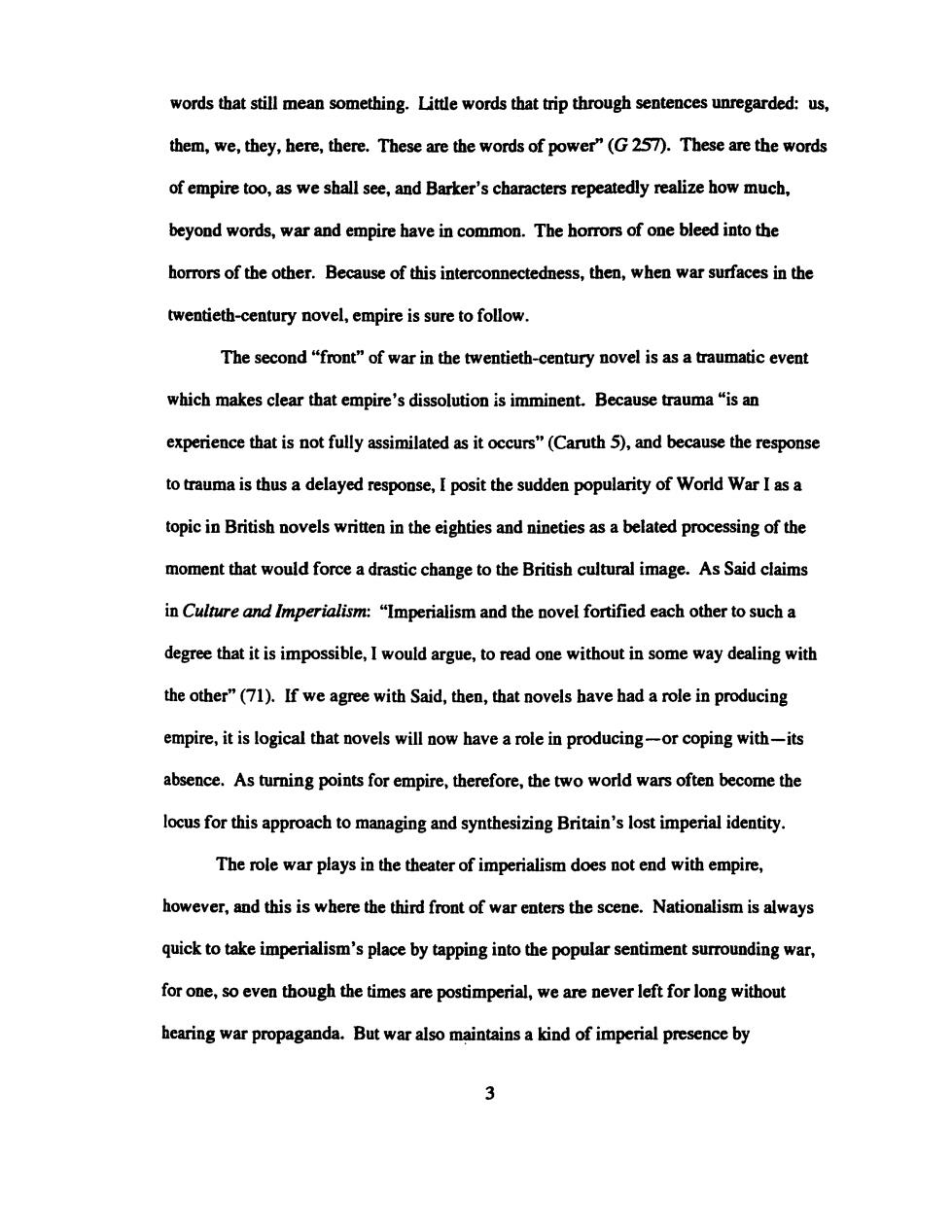正在加载图片...

words that still mean something.Little words that trip through sentences unregarded:us, them,we,they,here,there.These are the words of power"(G 257).These are the words of empire too,as we shall see,and Barker's characters repeatedly realize how much, beyond words,war and empire have in common.The horrors of one bleed into the horrors of the other.Because of this interconnectedness,then,when war surfaces in the twentieth-century novel,empire is sure to follow. The second "front"of war in the twentieth-century novel is as a traumatic event which makes clear that empire's dissolution is imminent.Because trauma "is an experience that is not fully assimilated as it occurs"(Caruth 5),and because the response to trauma is thus a delayed response,I posit the sudden popularity of World War I as a topic in British novels written in the eighties and nineties as a belated processing of the moment that would force a drastic change to the British cultural image.As Said claims in Culture and Imperialism:"Imperialism and the novel fortified each other to such a degree that it is impossible,I would argue,to read one without in some way dealing with the other"(71).If we agree with Said,then,that novels have had a role in producing empire,it is logical that novels will now have a role in producing-or coping with-its absence.As turning points for empire,therefore,the two world wars often become the locus for this approach to managing and synthesizing Britain's lost imperial identity. The role war plays in the theater of imperialism does not end with empire, however,and this is where the third front of war enters the scene.Nationalism is always quick to take imperialism's place by tapping into the popular sentiment surrounding war, for one,so even though the times are postimperial,we are never left for long without hearing war propaganda.But war also maintains a kind of imperial presence by 3